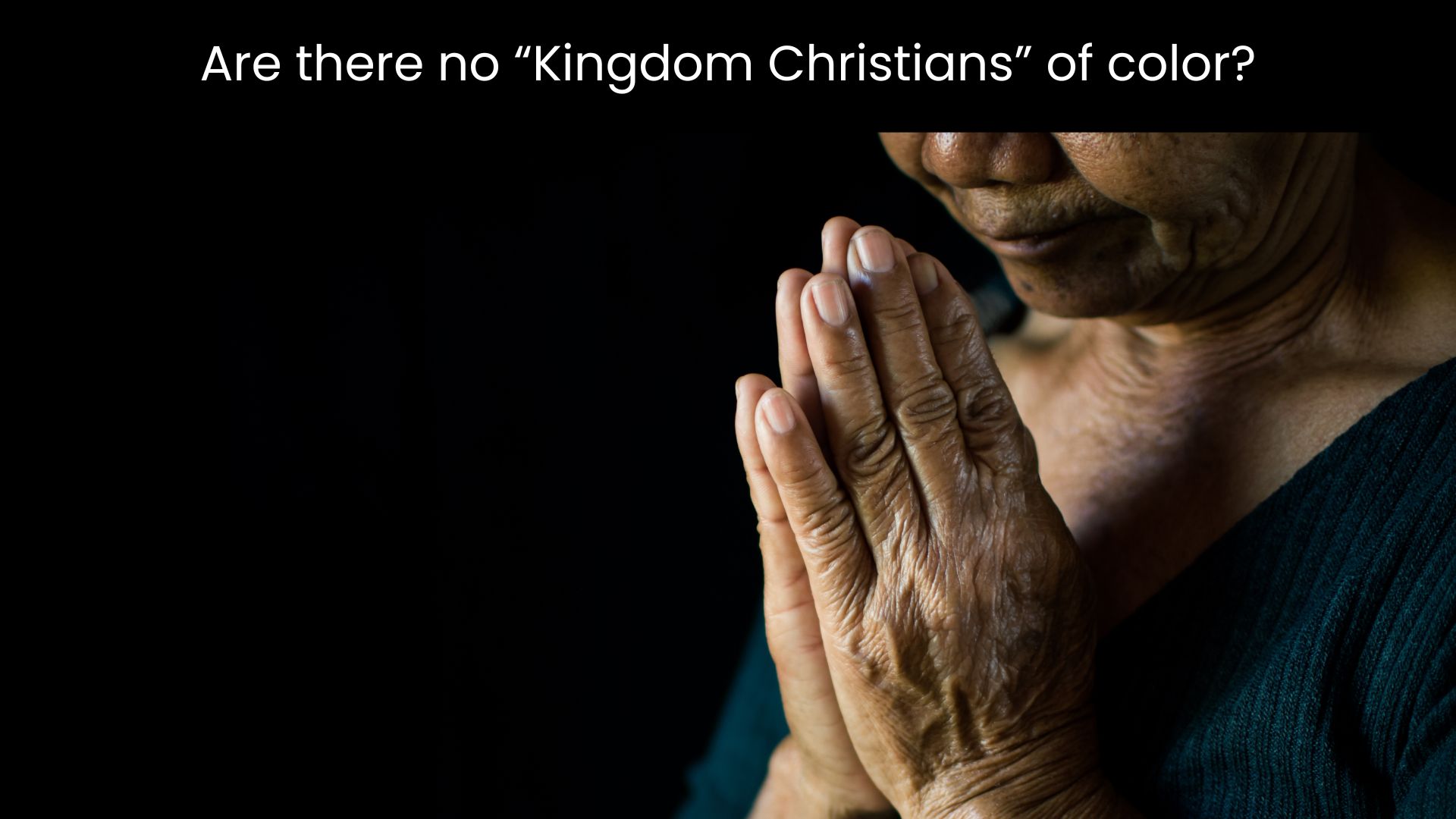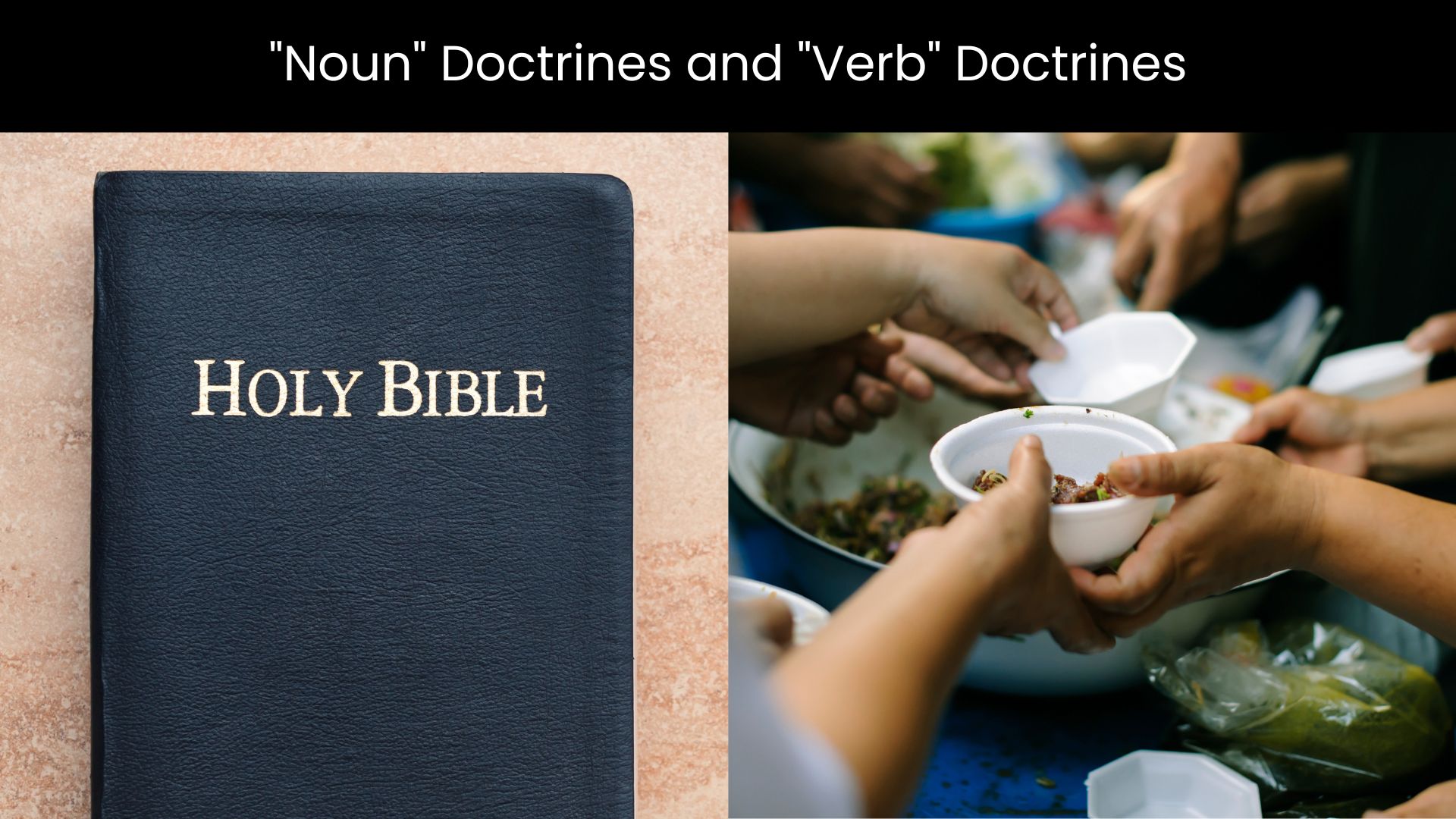
The following is taken from an interview with Clifford Schrock conducted by Reagan Schrock.
The first thing to be said about nonresistance is that it is different from classical pacifism, in the sense that we do not think the government should not go to war, or that there is no place for capital punishment. The term ‘nonresistance’ is drawn primarily out of the Sermon on the Mount where Jesus says to “resist not evil”(Matthew 5:39). Whether one is in business, in church, or is involved in some sort of government job or government responsibilities, Jesus’ commands of nonresistance still encompasses all of a Christian’s life. A Christian’s life should be unified, not splitting to say, “Here’s my secular life and here is my following Christ.” We must follow Christ in every area. Do we do that perfectly? Probably not, but that’s the call. The vision is to be like Christ and to respond to that calling in every area of our lives.
Nonresistance doesn’t just mean that we don’t go to war; it’s a lifestyle.Sometimes people understand nonresistance only in terms of the negative, by the things we don’t do, such as not going to war. Even the word itself, nonresistance, is in the negative. During one of my classes on this topic we talked a good bit about terminology and if there could be a better term for this principle. A possible replacement would be ‘radical love’, because that’s really what we are called to do: to love our neighbor, to love our enemies‒and that becomes proactive, it becomes something we do. It also takes us far beyond passive nonresistance and simply backing out of the situation. Jesus did not call us to back out and walk away. He called us to do more.
Sometimes when we use the term nonresistance we think we shouldn’t resist evil, and this has resulted in our having been given the label, “the quiet in the land”. That’s not all bad, but sometimes it’s gone too far and we haven’t gotten in the way of evil, to use Val Yoder’s expression. In a very proactive way, instead of passively doing nothing, we should be getting in the way of evil. The Scriptural principles of nonresistance, however, are what shapes how we get into the way of evil as followers of Christ. We don’t petition, protest, picket, try to force our agenda, or force the government or other people to do what we want them to do. We can appeal, we can pray, but those same aforementioned principles shape how we go about approaching those kinds of interventions.
In Matthew chapter 5 Jesus says, “…love your enemies, bless them that curse you, do good to them that hate you, and pray for them which despitefully use you, and persecute you; that you may be the children of your Father which is in heaven.”(Matthew 5:44-45) What does this look like in practical ways in our lives? I think it starts in the home and in our home relationships. We attempt to teach our children to not hit back, to do something nice, and that’s hard because it’s not natural. It goes against our natural grain. But as believers and as Christians we are empowered by the Holy Spirit to respond in those sorts of ways. We all encounter these kinds of situations.
Even within the Christian body sometimes people do things that hurt us. How do we respond? Christ would call us to respond with grace, with love, with blessing, and to give the benefit of the doubt instead of responding with evil. It’s not just the classic question of, “What are you going to do when the madman comes into your house with a gun and he’s going to kill your whole family? Are you just going to sit back and let him do it?” That’s a hypothetical question; but what about the real questions and situations that we do face everyday? Paul writes in Romans 12, “Bless them which persecute you: bless, and curse not. Rejoice with them that do rejoice, and weep with them that weep.”(Romans 12:14-15) This is very practical.
When someone else gets something that we wanted, be it a position or a material thing, how do we respond? Do we respond with envy, jealousy, and harsh words, or do we respond by rejoicing with those that rejoice and weeping with those who weep?
“Be of the same mind one toward another. Mind not high things, but condescend to men of low estate. Be not wise in your own conceits. Recompense to no man evil for evil. Provide things honest in the sight of all men. If it be possible, as much as lieth in you, live peaceably with all men. Dearly beloved, avenge not yourselves, but rather give place unto wrath: for it is written, Vengeance is mine; I will repay, saith the Lord. Therefore if thine enemy hunger, feed him; if he thirst, give him drink: for in so doing thou shalt heap coals of fire on his head. Be not overcome of evil, but overcome evil with good.” Romans 12:16-21
The New Testament vision of Christ for His Kingdom followers is not to overcome evil with bullets and bombs; He wants to overcome evil with good, kindness, and with love. Jesus wasn’t only mercy; He’s also truth and justice. Jesus does want us to speak truth and to confront sin when it needs to be confronted. Jesus is justice, but it’s also clear from this passage in Romans chapter 12 that He is the one who wants to retain that authority of justice. Vengeance is His, He will repay.(Romans 12:19)
In an atheistic worldview there’s really no ultimate justice, because Hitler dies, and he’s dead and gone like a dog—he escaped justice. But in a Christian worldview there is always justice. Either the individual will face justice at the end of life, or Christ paid the penalty and He met the justice. When we confess our sins, God is faithful and just to forgive us our sins(1 John 1:9) In Christ’s vision in the New Testament, He doesn’t call His followers to be the ministers of justice. He wants us to be ministers of truth and grace, but ultimately He is the Minister of Justice. Interestingly enough in Romans 12, where He says that we are not to be the ministers of justice and vengeance as His children, and that we are not to recompense evil for evil, He immediately goes on to talk about the role of the state in the beginning of chapter 13 and how they are the ministers of justice. Following that He comes back in verse 10 of Romans 13 and says, “Love worketh no ill to his neighbour: therefore love is the fulfilling of the law.”(Romans 13:10) He’s talking about love. He’s talking about how we respond to evil in our lives. God is the Minister of Justice, the state is His minister of justice within this world, but it’s not our call to do that. We are called to love and love is the fulfilling of the law.







2 comments
Karen Bremner
Thank you for this article! As a 54 year old grandmother who is now seeking the path of non resistance (after a lifetime of “resistance “ so to speak) I find it very enlightening and simple to understand. I never saw nonresistance as a way of life.
Anabaptist Perspectives
Thank you for sharing your experience, Karen! It is encouraging to hear from others who also are pursuing Christ through discipleship. We wish you God’s blessing as you follow him.